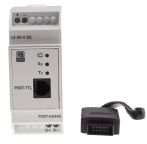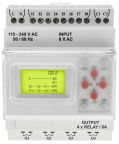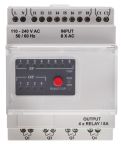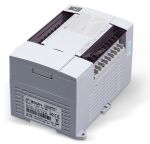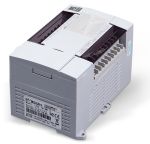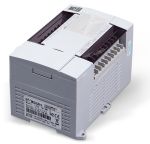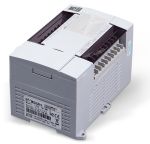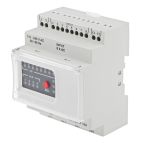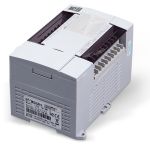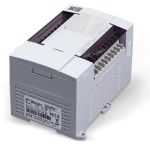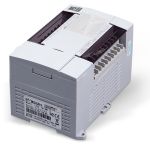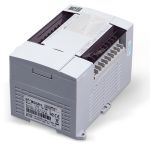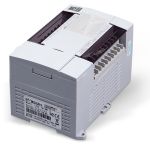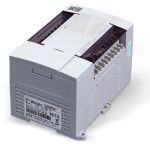PLCs - Programmable Logic Controllers
PLC, which stands for Programmable Logic Controller, is a control system based on a digital computer, widely employed in industrial automation to supervise and regulate machinery or processes. Built to endure challenging industrial conditions, a PLC is commonly utilised to automate tasks demanding accuracy, dependability, and adaptability. It comprises a programmable microprocessor, input and output modules, along with multiple communication interfaces.
How do PLCs (Programmable Logic Controllers) Work?
PLCs (Programmable Logic Controllers) work by executing a program or set of instructions to control and automate industrial processes.
- Input Acquisition
- Program Execution
- Program Logic
- Decision Making
- Output Control
- Communication
- Monitoring and Diagnostics
Benefits of PLCs (Programmable Logic Controllers)
These are some of the advantages of using PLCs in industrial environments:
- Flexibility: They offer high flexibility in programming and reprogramming. They allow for easy modification and adaptation of control logic to accommodate changes in the process or system requirements without requiring hardware modifications.
- Reliability: Typically, PLCs are designed to operate in harsh industrial environments. They are built to withstand extreme temperatures, vibration, electrical noise, and other challenging conditions.
- Real-time Operation: They can also offer real-time control, enabling precise and timely responses to inputs and events. This is crucial in applications that require fast and accurate control, such as high-speed manufacturing processes or critical safety systems.
- Diagnostics and Troubleshooting: PLCs provide built-in diagnostics and monitoring capabilities, allowing operators to detect faults, analyse performance, and troubleshoot issues quickly. This facilitates maintenance and minimises downtime.
- Safety Features: Many PLCs offer safety-oriented functionality, including specialised programming languages and certified safety modules. Safety PLCs ensure compliance with industry safety standards and provide features such as safety interlocks, emergency stop functions, and fault detection.
- Remote Access and Monitoring: PLCs with network connectivity allow for remote access and monitoring, enabling operators to control and monitor processes from a central location or through secure remote connections. This enhances operational efficiency and facilitates remote troubleshooting.
PLCs (Programmable Logic Controllers) Applications
PLCs are commonly used in different areas of industrial production. This includes the following:
- Manufacturing
- Power Generation and Distribution
- Chemical and Petrochemical Industry
- Water and Wastewater Treatment
- Food and Beverage Industry
- Automotive Industry
- Pharmaceutical Industry
- Packaging and Material Handling
- Oil and Gas Industry
How to Choose the Right PLC Controller
Selecting the right PLC controller for your application is essential to ensure efficient and reliable automation. Here are several key factors to consider:
- Number of Input/Output (I/O) Points: The I/O capacity of a PLC control module is crucial because it determines how many devices the PLC can control. Consider how many sensors, actuators, and other equipment will be connected to the system. For smaller systems, a compact PLC-based controller with fewer I/O points may suffice, while larger, more complex operations may require a modular or scalable solution with higher I/O capabilities.
- Environmental Conditions: The operating environment plays a significant role in the selection of a PLC control system. For harsh environments—such as those with extreme temperatures, high humidity, dust, or vibration—you will need a PLC that is rugged, with a suitable ingress protection (IP) rating and industrial-grade components. For less demanding environments, standard controllers can offer cost-effective solutions.
- Processing Speed and Memory: The speed at which the PLC controller processes information is vital, particularly in applications requiring real-time decision-making. A fast PLC controller ensures seamless automation of processes and minimises lag in high-demand environments. Additionally, consider the memory capacity needed for storing complex programmes and data logs. A higher memory PLC is necessary for larger, more intricate control tasks.
- Communication and Integration: Compatibility with existing automation systems is another critical factor. Ensure the PLC supports the required communication protocols, such as Ethernet/IP, Modbus, or Profibus, to integrate seamlessly with other equipment. This is particularly important for PLCs in industries relying on real-time data exchange and system-wide control.
- Expansion Capabilities: If your business or process requirements are likely to grow or change, opting for a PLC controller with modular expansion options is a smart choice. Modular PLCs allow for the addition of I/O points, memory, or additional functionality as needed, providing flexibility and future-proofing your system.
- Programming Software: Ease of programming is another key consideration. Choose a PLC with user-friendly software that supports ladder logic, functional block diagrams, or structured text, depending on your preference and application complexity. Some brands offer advanced simulation and testing tools, enabling you to validate the PLC control system before deploying it.
How to Order a PLC Controller from RS Hong Kong
Ordering a PLC controller from RS Hong Kong is straightforward. To place an order, simply browse our online store, choose the desired product, and follow the easy checkout process. We provide detailed product information and customer support to help you select the suitable product for your automation requirements.
Shop at RS Hong Kong and get PLCs from trusted brands like Industrial Shields, Siemens, and Schneider Electric. You can also find other equipment and components for your industrial applications, such as industrial sockets, pneumatic fittings, axial fans, and more.
How Delivery Works at RS Hong Kong
At RS Hong Kong, we prioritise delivering your orders quickly and efficiently. We offer a variety of shipping options to meet your specific needs, including standard and express delivery services. Our commitment to providing reliable shipping ensures your products arrive on time, every time. To find out more about our shipping methods, estimated delivery times, and associated fees, simply check out our comprehensive delivery information page.
Popular Searches
Related links
- RS PRO Logic Controller for Use with RS PRO PLC Expansion Modules Relay Output DC Input
- RS PRO Logic Controller for Use with RS PRO PLC Expansion Modules Transistor Output DC Input
- RS PRO Logic Controller for Use with RS PRO PLC Expansion Modules Relay Output DC Input
- RS PRO Logic Controller for Use with RS PRO PLC Expansion Modules Transistor Output DC Input
- RS PRO Logic Controller for Use with RS PRO PLC Expansion Modules Transistor Output DC Input
- RS PRO Logic Controller for Use with RS PRO PLC Expansion Modules Transistor Output DC Input
- RS PRO Logic Controller for Use with RS PRO PLC Expansion Modules Relay Output DC Input
- RS PRO Logic Controller for Use with RS PRO PLC Expansion Modules Relay Output DC Input

